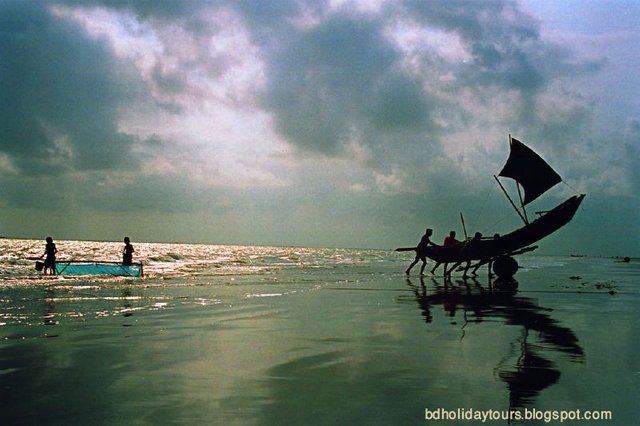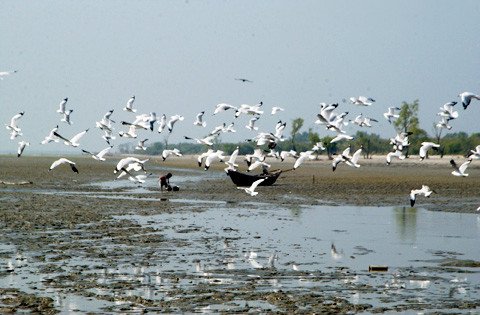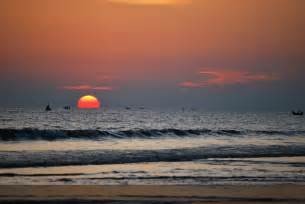Kuakata (Daughter of the Sea)

Kuakata is truly a virgin beach and a sanctuary for migratory winter birds...
Etymology:_
The name Kuakata originated from the word 'Kua'-the Bengali word for "Well" which was dug on the sea shore by the early Rakhine settlers in quest of collecting drinking water,[4] who landed on Kuakata coast in the eighteenth century after being expelled from Arakan (Myanmar) by the Mughals.[5] Afterwards, it has become a tradition of digging Well in the neighbourhoods of Rakhaine tribes for water

Geography:_
Kuakata is located in Kalapara Upazila, Patuakhali District.[6] It is about 320 kilometres (200 mi) south of Dhaka, the capital, and about 70 kilometres (43 mi) from the district headquarters.[1]
Culture:_
Kuakata is the place of pilgrimage for both Hindu and Buddhist communities. Innumerable devotees arrive here at the festival of 'Rush Purnima' and 'Maghi Purnima'. On these two occasions the pilgrims take holy bath at the bay and participate in the traditional fairs.[1] One may also visit the 100 years old Buddhist Temple where the statue of Goutama Buddha and two wells of 200 years old are locate.
Beach:_
Kuakata offers a full view of the sunrise and sunset from the same white sandy beach in the water of the Bay of Bengal. Locally known as Shagor Kannya (Daughter of ocean), the long strip of dark, marbled sand stretches for about 18 kilometres (11 mi). The long and wide beach at Kuakata has a typical natural setting. This sandy beach has gentle slopes into the Bay of Bengal. Kuakata is also a sanctuary for migratory winter birds.
On the eastern end of the beach is Gongamati Reserved Forest, an evergreen mangrove forest and snippet of the original Kuakata. When the Rakhines settled in the area in 1784, Kuakata was part of the larger Sundarbans forest. However, the Sundarbans is now at a distance of one-hour by speed boat. As a mangrove forest, Gongamati, like the Sundarbans, offers some protection against tidal surges, however it too is being threatened by logging and deforestation. The best way to reach the forest is by foot or bike along the beach, where a flock of flag flying fishing boats can be seen trawling the coast. Choosing to visit Gangamati in the late afternoon is a perfect time to watch the sun cast shadows on the abstract exposed mangrove roots.
On 13 September 2007 government had announced a red alert in Kuakata as caution for a possible tsunami.

thank you for read this.....
osthir ekta place
Hmm..